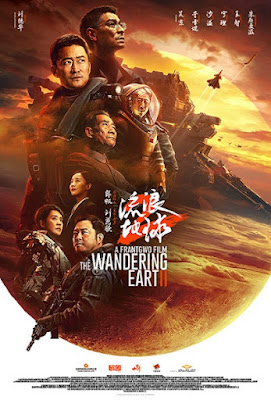When the opening installment of Cixin Liu bestselling Remembrance of Earth’s Past series was first published in the United States, it was considered more definitive than the original Chinese edition, because the author was able to move scenes of the Cultural Revolution earlier in the novel, instead of “burying” them in the middle. (Believe me, I was there). However, the first volume of the graphic novel adaptation seemingly reverts to the old Chinese outline. Readers must continue waiting for both the horrors of the Gang of Four and the aliens themselves after reading the first volume of Liu’s The Three-Body Problem, adapted as a graphic novel by Jin Cai, Twilight Lu, and Silver—and illustrated by XuDong Cai, which is now on-sale for holiday shoppers.
Viewers of the hit Netflix series understand why the shocking horrors of the Cultural Revolution are so necessary to Liu’s story. They persuasively explain how a human being could decide humanity no longer deserves to exist. Cai, Lu, and Silver are not even close to getting there yet. However, there is a possibility physics no longer exists. At least that was the partial lament expressed in one physicist’s suicide note.
Evidently, a suicidal epidemic has suddenly cut down dozens of the world’s top theoretical physicists. It has gotten so bad, even the CCP state security apparatus has noticed. It turns out the victims were overwhelmingly (but not quite exclusively) members of a mysterious scholarly society known as The Frontiers of Science. Therefore, the multinational working group wants Prof. Wang Maio to go undercover.
He is also a physicist, but he works on practical applications, so he should be immune to whatever is affecting more abstract-minded scientists like his old friend, Dr. Yang Dong. However, working with his handler, hardboiled police detective Shi Qiang, will be a challenge, especially when he recognizes a cryptic message apparently meant for his eyes only.
If readers only judge from Cai, Lu, and Silver’s first volume, they will little know the enormous scope of Liu’s novel, which only gets wider with successive volumes. The significance of the “Three-Body” “game is hardly even hinted at. Of course, the novel’s grand historical sweep cannot be established without the episodes set during Cultural Revolution. In fact, there is not even a sense of cosmic stakes yet.

